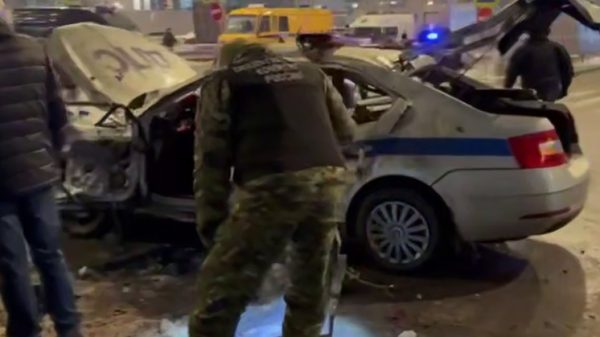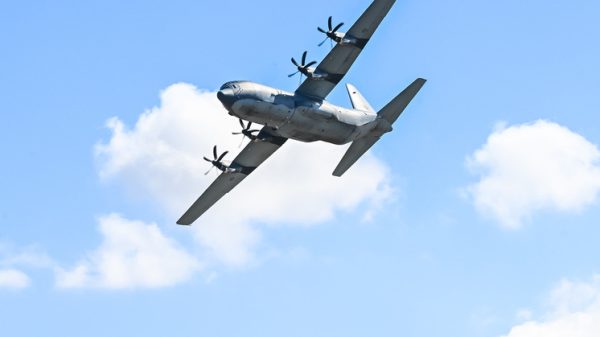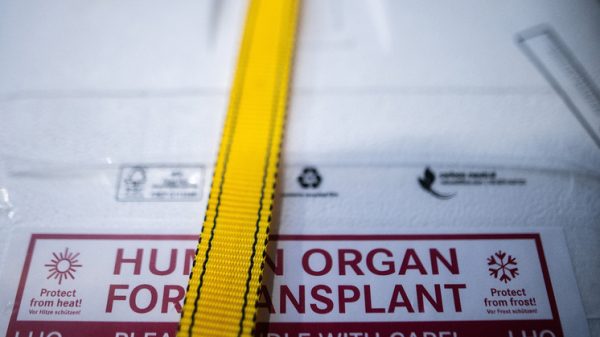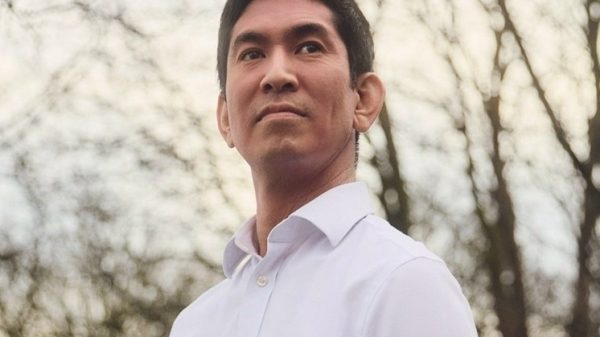 Ukrainians queue for hot food in a makeshift bomb shelter in Mariupol Photo: AP
Ukrainians queue for hot food in a makeshift bomb shelter in Mariupol Photo: AP
Russian military commanders may be held accountable for starving people Mariupol in a first-of-its-kind court case with major implications for Israel's war in the Gaza Strip.
International investigators will seek to hold Russian military commanders accountable for deliberately starving civilians during the siege of Mariupol in February. and May 2022
Catriona Murdoch of Global Rights Compliance, an international law firm working with Ukraine's prosecutor general's office, said her team had amassed enough evidence to accuse individual Russian units and commanders of destroying critical infrastructure and blocking humanitarian aid supplies in a deliberate attempt to build weapons. hunger during the battle for the city.
The full dossier of evidence, now being compiled, will be formally presented to the International Criminal Court in January next year. If court prosecutors decide there is a case to be made, they can issue arrest warrants for commanders and officials.
This will be the first time a war crime related to the famine has been brought to justice since as it was outlawed by the Rome Convention. Statute of the International Criminal Court 1998.
 The Azovstal metallurgical plant was a Russian target during the encirclement of Mariupol. Photo: ALEXANDER ERMOCHENKO/REUTERS
The Azovstal metallurgical plant was a Russian target during the encirclement of Mariupol. Photo: ALEXANDER ERMOCHENKO/REUTERS
«From damage mapping, from weapons experts, from all kinds of social media, Telegram and open source analysis [it is clear] that this was calculated,» Ms Murdoch told The Telegraph.
“This siege has unfolded in a very short period of time in a very precise and calculated way, and we think there may be few other ways to reframe it other than the rather calculated use of fasting.”
“The plan, as far as we could see, consisted of three stages: encirclement, then attacks on critical infrastructure, and at the same time moving to the third phase — suspending aid, suspending evacuation and beginning the filtering process.
“So in the early days we see attacks on critical infrastructure and the impact that has had on civilians and water in particular. What does this mean in terms of asylum? So when you see in the dramatic theater these large collection points of civilians who are taking shelter, receiving food and medicine and gathering there to evacuate, then these types of distribution points themselves are then attacked. A pattern begins to emerge that this cannot be… that it is no coincidence that all these events occurred within a few days of each other.”
Russia surrounded Mariupol in the first week of its invasion of Ukraine in February 2022. A 13-week siege followed, ending with the last Ukrainian defenders starved to death in their last stronghold at the Azovstal steelworks. Much of the city was destroyed, and the municipal government in exile estimated that at least 25,000 civilians had died in the fighting when it fell.
In the battles for Mariupol, a residential building was damaged. Photo: AP
Ms Murdoch said the battle was relatively short compared to other modern urban conflicts, but it showed patterns that correlated strongly with other possible uses of starvation.
This means that if prosecutions are brought , it can have serious consequences. implications for other conflicts, including the war between Israel and Hamas.
“Looking at what's happening in Gaza is tragic, but incredibly helpful in terms of understanding what it looks like in the context of the wars we're seeing in 21st century. We have seen this time and time again — from Yemen to Syria, from Tigray to South Sudan, from the Gaza Strip to Ukraine,” she said.
“In many ways this is one of the manifestations of modern urban conflicts and modern conflicts. in a more general sense. So there is a growing sense of urgency that this needs to be analyzed internationally,” she added.
Human rights activists have accused Russia and Syria of exploiting the famine during the siege of Aleppo and Eastern Ghouta during the Syrian civil war. In 2017, Penny Mordaunt, then international development secretary, said Saudi Arabia may be guilty of a crime related to the blockade of the Houthi-held Yemeni port of Hodeidah. Riyadh later agreed to lift the naval blockade.
Israel accused
Israel was recently accused of exploiting the famine during its operation in the Gaza Strip, where it initially blocked all aid flows.
“The patterns are really similar: there is encirclement and siege, there is an attack on critical infrastructure, there is an attack on a shelter, there is a suspension of aid and a demonstration of the forced displacement of people. So these types of elements are usually found in cases of general fasting,” Ms. Murdoch said.
“The crime itself speaks of the destruction, deprivation or rendering unusable of everything that is necessary for survival. It depends on the context. What a South Sudanese mother will need in the summer is different from what an elderly Ukrainian in Mariupol will need in the winter, but it is all that is necessary for survival, and we are certainly seeing these essential items destroyed and stripped away. Another component is the suspension of aid. We're seeing this at a really significant level in Gaza.”
To reach the threshold for a successful conviction, prosecutors will have to demonstrate that the famine was part of a deliberate strategy and not an unintended consequence of legal tactics.
Neither Russia nor Ukraine are state parties to the Rome Statute, but Ukraine has accepted the jurisdiction of the ICC over alleged crimes occurring on its territory.
War crimes
This means that the ICC can prosecute Russian citizens for crimes allegedly committed in Ukraine, even if Russia itself is not a state party.
In March 2023, the court issued an arrest warrant for Vladimir Putin and Maria Alekseevna Lvova- Belova, Commissioner for Children's Rights in Russia, on charges of illegal movement and deportation of Ukrainian children.
Israel is not a member of the International Criminal Court, which is established as a court of last resort to try those accused of genocide, war crimes, crimes against humanity and the crime of aggression. < /p>
It is separate from International Court of Justice, which was created in 1945 as the highest court of the United Nations and a place where states can sue each other.
South Africa earlier this month filed a case against Israel at the International Court of Justice, accusing it of carrying out genocide in the Gaza Strip. Israel categorically denies these accusations.






















































Свежие комментарии